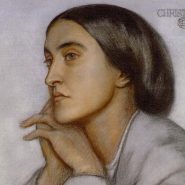By Robert Frost (1913)
One of my wishes is that those dark trees,
So old and firm they scarcely show the breeze,
Were not, as ’twere, the merest mask of gloom,
But stretched away unto the edge of doom.
I should not be withheld but that some day
Into their vastness I should steal away,
Fearless of ever finding open land,
Or highway where the slow wheel pours the sand.
I do not see why I should e’er turn back,
Or those should not set forth upon my track
To overtake me, who should miss me here
And long to know if still I held them dear.
They would not find me changed from him they knew—
Only more sure of all I thought was true.
Analysis
Frost’s “Into My Own” opens his first book as a declaration of independence. The speaker imagines vanishing into a stand of dark trees, not out of despair but from a need to test the self beyond familiar paths.
The poem’s measured rhymes steady the youthful yearning that drives it; adventure here is both physical and spiritual. The forest becomes a space of trial where the speaker’s solitude might confirm his convictions rather than erase them.
Beneath its confidence lies tenderness. He hopes that those who follow “would not find me changed / Only more sure of all I thought was true.” The poem transforms withdrawal into continuity—a faith that distance need not sever love. In twelve taut lines, Frost sketches the lifelong paradox of his work: the wish to belong and the equal wish to be alone.
